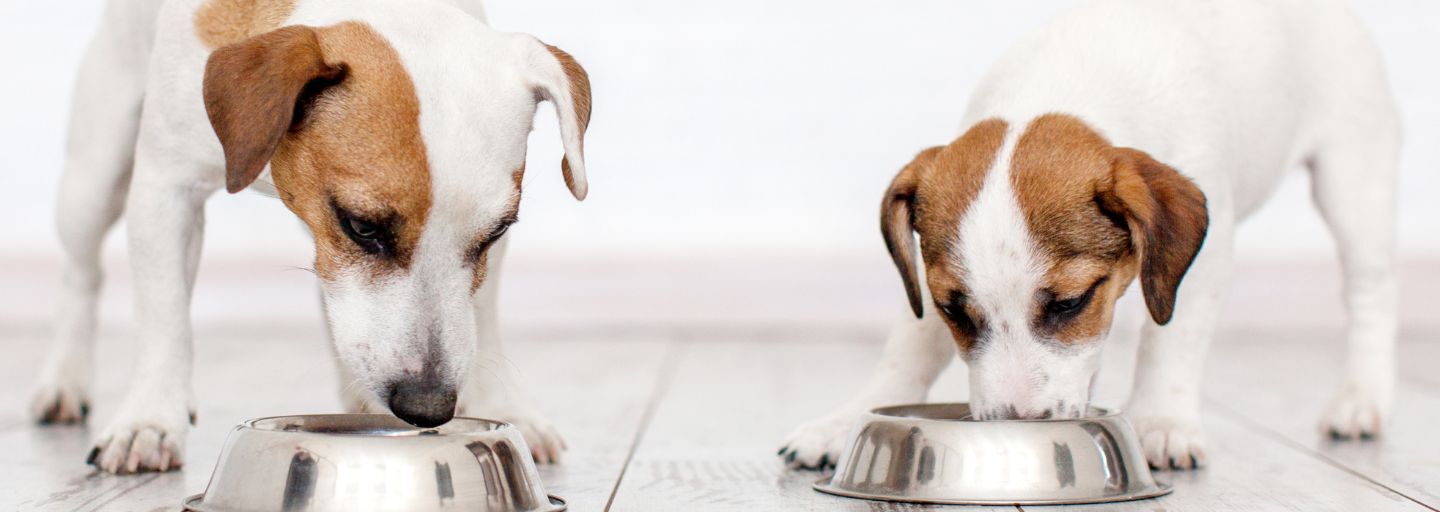When it comes to feeding our furry friends, it's essential to understand their nutritional needs at different stages of life. While puppy food is specifically formulated for growing puppies, it may not be suitable for adult dogs. Let's explore this topic further by examining the differences between puppy food and adult dog food.
The Nutritional Needs of Puppies
Puppy food is designed to provide the essential nutrients needed for a puppy's growth and development. Puppies have higher energy requirements and need more protein, fat, vitamins, and minerals compared to adult dogs. This is because they are in a crucial stage of rapid growth, bone development, and overall maturation. Puppy food is formulated to support these specific needs, typically containing higher levels of calories, protein, and fat. Within the Purina Puppy Food range, there are a variety of puppy foods tailored to the unique needs of each dog breed.
The Nutritional Needs of Adult Dogs
Adult dog food, on the other hand, is formulated to meet the nutritional requirements of fully grown dogs. Adult dogs have different energy levels and nutritional needs compared to puppies. They require a balanced diet that maintains their weight, supports their activity level, and promotes overall health. Adult dog food typically has lower calorie content and adjusted levels of protein and fat to suit their needs. Within the Adult Dog Food range, there are a variety of dog foods tailored to the unique needs of each dog breed.
Potential Issues with Feeding Adult Dogs Puppy Food
Feeding adult dogs puppy food can lead to several potential issues that can impact their health and well-being. It's important to understand these potential problems to make an informed decision about your dog's diet. Here are some key issues to consider:
- Weight Gain and Obesity: Puppy food is formulated with higher calorie content to support the rapid growth and energy needs of growing puppies. Feeding adult dogs puppy food can result in excessive calorie intake, leading to weight gain and obesity. Obesity in dogs can contribute to various health problems, including joint issues, heart disease, and diabetes. It's crucial to maintain a healthy weight for your adult dog to ensure their overall well-being.
- Nutritional Imbalance: Puppy food is specifically designed to provide the optimal balance of nutrients for growing puppies. Adult dogs have different nutritional requirements and feeding them puppy food may result in an imbalance of nutrients. Excessive protein and fat levels in puppy food can strain the kidneys and liver of adult dogs, especially those with pre-existing health conditions. It's important to provide adult dogs with a balanced diet that meets their specific nutritional needs.
- Digestive Upset: Adult dogs have a more mature digestive system compared to puppies. Feeding them puppy food, which is formulated to be easily digestible for puppies, may cause digestive upset in adult dogs. Sudden dietary changes can lead to diarrhea, vomiting, and other gastrointestinal issues. It's essential to introduce any new food gradually to allow your dog's digestive system to adjust.
- Potential Health Concerns: Certain health conditions in adult dogs may be exacerbated by feeding them puppy food. For example, dogs with kidney disease or other renal issues may have difficulty processing the higher protein levels found in puppy food. It's crucial to consider your dog's specific health condition and consult with your veterinarian to determine the most appropriate diet.
Exceptions: Pregnant or Nursing Dogs
There are some exceptions where adult dogs may benefit from eating puppy food. For example, pregnant or nursing dogs have increased nutritional requirements similar to puppies. In these cases, transitioning to a high-quality puppy food under the guidance of a veterinarian may be appropriate to support the mother's health and the growth of her puppies.
Consulting with Your Veterinarian
If you're considering switching your adult dog to puppy food, it's crucial to consult with your veterinarian first. They can evaluate your dog's specific needs, health condition, and activity level to determine the most suitable diet. Your veterinarian may recommend a high-quality adult dog food that meets your dog's nutritional requirements without the excess calories and nutrients found in puppy food.
Transitioning to Adult Dog Food
When transitioning your puppy to adult dog food, it's important to do so gradually. Abruptly switching their diet can cause digestive upset. Start by mixing a small amount of the new adult dog food with the puppy food and gradually increase the proportion over a week or two until your puppy is fully transitioned to the new diet.
What about Senior Dogs?
When it comes to senior dogs, their nutritional needs differ from puppies and adult dogs. Senior dogs require a diet with lower calorie content, support for joint health, easily digestible ingredients, and consideration for specific health concerns. Puppy food is not suitable for senior dogs, and it's important to consult with a veterinarian to determine the most appropriate diet for your aging furry companion. Regular veterinary check-ups and addressing dental health are also crucial for senior dogs. By considering these factors, you can ensure that your senior dog receives the optimal nutrition to support their overall health and well-being in their golden years. Discover the Purina Senior Dog Food range.
It's generally recommended to feed dogs a diet specifically formulated for their nutritional needs according to their specific life stage. Consulting with your veterinarian is crucial to determine the most suitable diet for your adult dog based on their age, breed, size, activity level, and any underlying health conditions. By choosing an appropriate food for your dog, you can ensure that your furry friend receives the optimal nutrition for their overall health and well-being.



